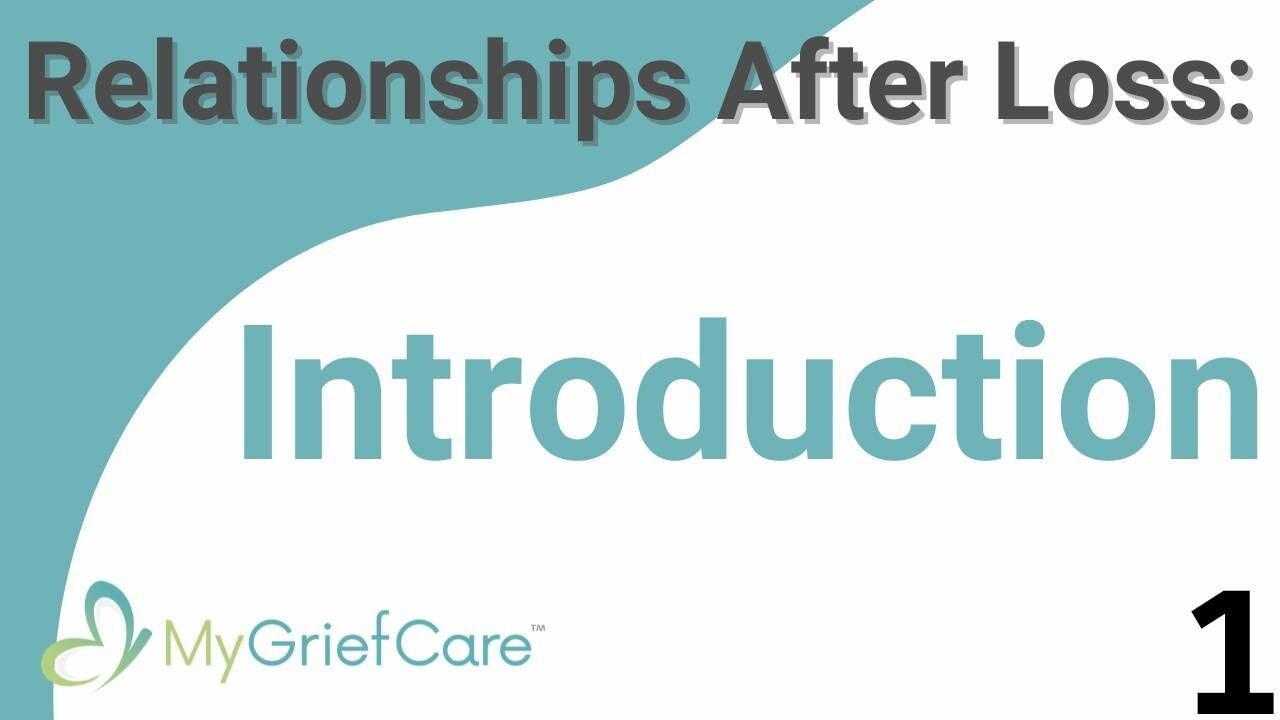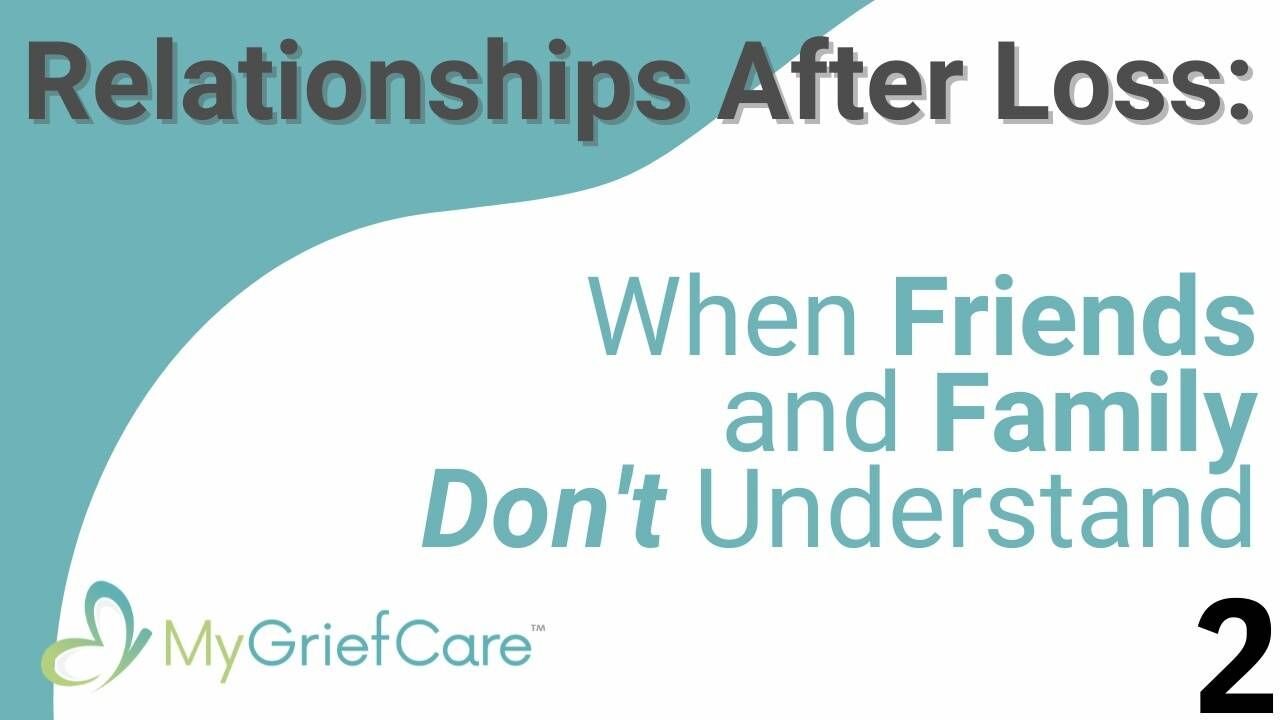- Introduction
- Understanding Grief
- People Grieve Differently
- The Brain Fog of Grief
- The Vocabulary of Grief
- Grievers Don’t Need to be Fixed
- Misconceptions About Grief
- There Are No Orderly and Predictable Stages In Grief
- When Caring People Say Dumb Things When You’re Grieving
- What to Say to Others When You’re Grieving
- The Impact of Who you Lost and How you Lost Them
- Heavy Grief Days
- The Grief Letter
- Ways to Remember Them
- Permissions for Grievers
- Creating Bright Spots in the Midst of Grief
- Why Are Many Grievers Not Comfortable Crying In Front of Others?
- Why Grievers Don’t Need to Be Strong
- Do I Just Need Time to Heal From Grief?
- Why Do Grieving People Get the Message They Shouldn’t Be Sad?
- Is Staying Busy Good for Grief?
- The Isolation of Grief
- Can You Fill the Void Left by the Death of Loved One?
- How Long Does the Pain of Grief Last?
- How Do You Get Over Grief?
- I Don’t Want to Forget My Loved One Who Died
- Relationships Change After Loss
- Why Don’t Friends and Family Understand Your Grief?
- How to Tell Others What You Need in Your Grief
- Grief Can Cause You to Re-evaluate Relationships
- I Lost My Spouse and My Friends
- All the Phases in the Grief Journey
- I’m Grieving and Just Barely Surviving
- Why Do I Feel Like I Am Just Existing in My Grief?
- When Will I Be Ready for Grief Counseling?
- Can You Heal Your Grief?
- Living Again After Losing a Loved One
- How Grief Affects Mental Health
- Grief & Depression
- How Trauma Affects Your Grief
- Co-Dependency and Grief
- Should I take medication for my grief?
- The Uniqueness of Grieving A Suicide
- Suicide Shock: I Can’t Believe They Did It
- Feeling Blame and Shame After a Suicide
- The Abandonment of Suicide
- The Stigma of Suicide
- Interview with widow who lost two husbands by suicide
- Losing Your Husband to Suicide
- What To Do With Your Loved One’s Belongings After They Die
- No Cost Financial Coaching & Planning for Widows: Chris Bentley
- Hope When Shattered By Grief
- Answers to Your Questions About Grief
- Introduction
- Is Being Angry at God a Sin After My Loved One Died?
- Where Did My Peace, Joy and Gratitude Go after I lost my loved one?
- Can Grief and Hope Co-Exist?
- Why Does God Heal Some People But Not Others?
- Is Suicide an Unforgivable Sin?
- Why Do I Dislike Platitudes and Bible Verses?
- Why Did God Let My Loved One Die?
Relationships After Loss
5 Episodes
All Series
-
Foundations Of Grief
14 Episodes -
Misconceptions About Grief
12 Episodes -
Relationships After Loss
5 Episodes -
The Grief Journey
6 Episodes -
Grief & Mental Health
5 Episodes -
Grieving A Suicide
6 Episodes -
Conversations On Grief
4 Episodes -
Grief Talks
1 Episodes -
Questions Grieving Christians Ask
8 Episodes
Relationships After Loss
5 Episodes
Episode 3 : How to Tell Others What You Need in Your Grief
Downloads
Episode NotesThe Grief Letter
This episode is also found in Foundations Series but we wanted to add it here as well.
When you’re grieving, people around you may not know what to do or say. There is a great solution to this problem: tell them what you need. Learn how to write a letter letting people in on how you’re doing, what’s going on with you and what they can expect.
People may avoid or disappoint you by their lack of support. The things they do or don’t say may hurt you. There is a great solution to this problem: tell them what you need! If you don’t tell people what you need, you risk not being cared for and/or receiving unwanted help.
Most people around you want to help you and be supportive, but they are at a loss for what to do. They also may have unrealistic expectations for how you should be behaving because they don’t understand grief. Until you have been there, it’s hard to relate. My view of how to grieve changed dramatically after my husband died. I realized I had many misconceptions and probably hurt my friends who had lost loved ones by the things I did and didn’t do and my expectations for them.
We have the ability to help people help us! What I am about to share with you can really make a difference because those around you want to know what to do.
Introducing The Grief Letter
The best time to communicate is before you end up in an uncomfortable situation.
One way to accomplish this is by writing a letter letting people in on how you’re doing, what’s going on with you and what they can expect. While this may feel awkward, it really will ease your interactions with people and take stress off you. I was deeply wounded by people not responding the way I wanted them to and I soon realized that it wasn’t their fault. They had no idea what I wanted because I NEVER told them. I just assumed they should know and I was so wrong. Once I told them, they eagerly responded. It was actually a relief for them. The people who receive the letter will appreciate knowing how they can better help you, and you will have less stress and more appropriate help suited to your unique grieving style. Give this letter to everyone you know.
In my How to Get Through The Holidays workshop, I encourage people to write a grief letter in their holiday card. But it is great to do it anytime. You can write it and mail it, email it, put it in a social media post or even include it in the memorial service, funeral handout or program.
Your letter will be unique to you and it can be as long or as short as you like. Here are some ideas on what to include and if you don’t have the energy to write, ask someone to help. We have a worksheet posted in the text of this episode.
What to include in your grief letter:
- Briefly describe your experience and your feelings.
- Let people know what they can expect from you in your current state.
- Give your friends instructions on what they can do to help during this time. Let them know what is needed and when it is needed. Tell them what they can do and say that you’d find comforting, and what’s not comforting to you.
- List specific, practical needs they can help with.
- Briefly describe your experience and your feelings.
Share only your immediate needs. As your needs change, you can send or share a new letter. People won’t be offended if you tell them exactly how to help you. They will appreciate your clear instructions. It takes the guesswork out of serving you.
Here’s an example:
Dear Friends,
Losing Mark has been devastating to me. There is a huge hole in my heart. I know you are uncomfortable as you don’t like to see me sad and are not sure what to say to me or how to approach me, so I hope I can make it easier by sharing a few things. I am taking this time to help you to help me.
- I love to talk about Mark.
- I love to hear any of your memories or stories about Mark
- I can be happy one minute and crying the next. It just happens. Don’t be alarmed.
- There is nothing you can do to fix this, so please don’t try.
- Sometimes I want to and plan to attend an event, but then at the last minute, my emotions change, and I am not up to it or I may suddenly leave an event as the emotions may overwhelm me. Please don’t take it personally.
- I appreciate your patience and understanding if I let you down or don’t meet your expectations. I have to do what is best for me.
- I may not always answer texts, emails or voicemails but I do see them and appreciate them. Sometimes, I am just not up to talking.
- If you aren’t sure what to do or say, please ask me.
- Please reach out to my son. He is hurting so badly and missing his dad.
Thank you for caring. I appreciate you!
Warmly,
Anne-Marie
Here’s another example:
Dear Friends, here is how you can help me with my grief. I know it is uncomfortable to see me hurting and I hope this makes it easier to be with me and understand me.
- Remember: The greatest gift is sharing memories
- Let me know when you are hurting or missing them too. The worst is thinking I am alone in my grief.
- Help me to honor them in some meaningful way.
- Allow me to cry, laugh or leave when I need to.
- Allow traditions to change to accommodate the missing space.
- Allow me to say no to invitations.
- Allow me to change my mind often.
- Allow me to grieve longer than you think I should.
- You can’t fix it so please don’t try.
There is a worksheet to help you in the download section of this episode.
STEPPING STONE:
- Make a list of the things you think your friends and family need to know that could help them understand you. (Use the downloadable worksheet)
- What would be the best way you could share this – email, Facebook, text, letter.
- Write it in a kind way and make sure it is not too long and to the point. Lists are good!
REFLECTION:
You hold the key to getting the support and understanding you want. Kindly tell people what you need – because, they have no idea, just like many of us before we lost our loved ones.


